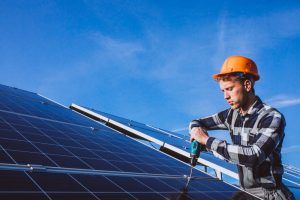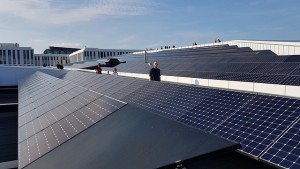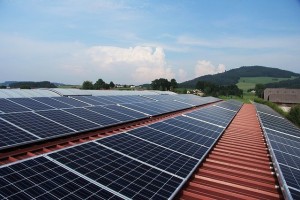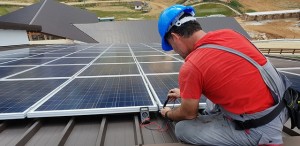Quando si parla di tagliare le bollette e avere il pieno controllo della propria energia, niente è più efficace di un impianto fotovoltaico 6 kW. Non è più solo una moda. Famiglie, professionisti e piccole imprese stanno passando al fotovoltaico perché garantisce libertà, risparmio e sicurezza.
Pensiamoci bene: il sole è la fonte di energia più affidabile che abbiamo. Con il giusto impianto, puoi sfruttarlo ogni giorno senza dipendere completamente dalla rete elettrica. Un impianto fotovoltaico è un investimento che dura nel tempo e porta vantaggi concreti, oggi e domani.
Perché 6 kW è la Taglia Giusta
Un impianto fotovoltaico 6 kW è la misura ideale per coprire i consumi medi di una famiglia o di un ufficio di dimensioni medio-piccole. È la scelta equilibrata: non troppo piccolo da risultare insufficiente, non troppo grande da sprecare produzione.
Con elettrodomestici, climatizzatori e tutte le abitudini quotidiane, i consumi crescono. Un sistema da 6 kW offre la potenza necessaria a coprire i bisogni principali e, se abbinato a un impianto fotovoltaico con accumulo, permette anche di conservare l’energia per la sera e le giornate nuvolose.
L’Importanza dell’Accumulatore
Un impianto fotovoltaico accumulo è il passo in più verso la vera indipendenza. Durante il giorno produci energia che, grazie alle batterie, puoi utilizzare quando il sole non c’è.
In pratica significa:
- Non sprechi l’energia che hai prodotto.
- Riduci al minimo la dipendenza dalla rete elettrica.
- Ti proteggi dall’aumento continuo dei costi energetici.
Avere un impianto fotovoltaico con accumulo è come avere un generatore personale sempre pronto. Una soluzione concreta e sicura.
Vantaggi Concreti
Con un impianto fotovoltaico 6 kW non stai solo montando pannelli sul tetto, ma costruendo un sistema che ti ripaga nel tempo. I benefici sono evidenti:
- Risparmio sulle bollette: l’energia prodotta in casa significa meno costi ogni mese.
- Sicurezza energetica: blackout e rincari diventano meno preoccupanti.
- Sostenibilità: riduci la tua impronta ambientale con energia pulita.
- Valore della casa: un immobile con fotovoltaico si vende più facilmente e a un prezzo migliore.
C’è anche un lato più “pratico e virile”: produrre la propria energia con il sole e immagazzinarla nelle proprie batterie è sinonimo di indipendenza e solidità.
Installazione Senza Stress
Molti pensano che installare un impianto fotovoltaico 6 kW sia complicato. In realtà, con l’azienda giusta diventa un percorso semplice e veloce. Dall’analisi iniziale al montaggio, fino all’assistenza, ogni fase è seguita da professionisti che conoscono il mestiere.
Così tu non devi preoccuparti dei dettagli tecnici, ma solo di godere dei benefici.
È il Momento di Agire
Se stai valutando il fotovoltaico, questo è il momento giusto per fare il passo. I prezzi dell’energia non scenderanno, e ogni mese che passa è denaro perso. Un impianto fotovoltaico 6 kW è la chiave per conquistare la tua indipendenza energetica.
Alimenta la Tua Casa con fotovoltaico.it
Noi di fotovoltaico.it siamo specializzati nella progettazione e installazione del giusto impianto fotovoltaico per ogni esigenza. Che tu voglia un semplice impianto fotovoltaico 6 kW o un sistema completo con accumulo, ti garantiamo competenza, affidabilità e tecnologie all’avanguardia.
Fai il primo passo oggi. Contatta il nostro team e scopri come il fotovoltaico può rivoluzionare la tua casa.




 As the name implies, it is a system that allows you to use the energy to be used later. It mainly gets its energy from the sun which it then converts to electricity you can use for your home. Aside from directly powering your home, you can also store it for later use. The latter is especially useful for days when sunlight is not as reliable.
As the name implies, it is a system that allows you to use the energy to be used later. It mainly gets its energy from the sun which it then converts to electricity you can use for your home. Aside from directly powering your home, you can also store it for later use. The latter is especially useful for days when sunlight is not as reliable. Clean Energy Council
Clean Energy Council It is renewable and not harmful to the environment. By simply setting up solar panels to get energy from the sun, you may generate electricity enough to keep appliances working without falter. In comparison to other means like oil and coal which generate pollution and reduce resources, solar energy is cleaner and more renewable.
It is renewable and not harmful to the environment. By simply setting up solar panels to get energy from the sun, you may generate electricity enough to keep appliances working without falter. In comparison to other means like oil and coal which generate pollution and reduce resources, solar energy is cleaner and more renewable.